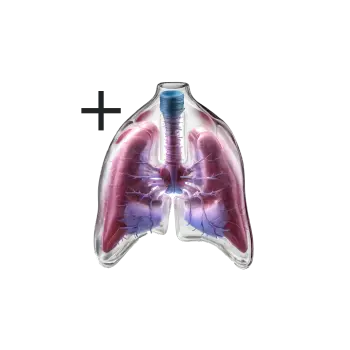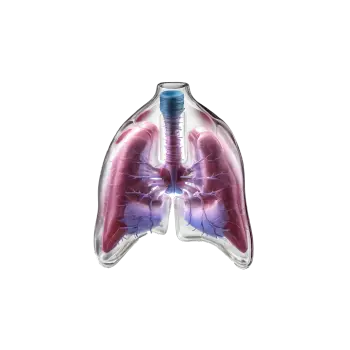What is PCOS
Polycystic Ovary Syndrome (PCOS) is a common hormonal disorder that affects individuals with ovaries. It is characterized by an imbalance in sex hormones, which can lead to a range of symptoms and health problems. PCOS affects approximately one in ten women of childbearing age and, in some cases, can be a precursor to metabolic syndrome, which, in turn, increases the risk of developing type 2 diabetes and cardiovascular diseases. A hallmark of PCOS is the formation of many small fluid-filled cysts on one or both ovaries. At the same time, the production of the male sex hormone, testosterone, is often elevated in relation to the female sex hormones, estrogen, and progesterone. This increased level of testosterone affects the body in several ways. It can make ovulation irregular or absent, lead to changes in the menstrual cycle, and increase the tendency to gain weight.
Causes of PCOS
The causes of polycystic ovary syndrome (PCOS) are not entirely established, but it is a complex condition believed to result from a combination of genetic, hormonal, and environmental factors. Here are some of the factors suspected to be involved in the development of PCOS:
Genetics: There is a genetic component in the development of PCOS. If there are cases of PCOS in the family, the risk of developing the condition increases.
Hormonal Imbalance: PCOS is primarily a hormonal disorder. An important factor is insulin resistance, where the body's cells do not respond normally to insulin. This leads to increased insulin production in the body, which, in turn, can increase the production of male sex hormones (androgens) such as testosterone.
Estrogen and Progesterone: An imbalance between estrogen and progesterone can affect ovulation and the menstrual cycle. PCOS patients may have high levels of estrogen and low levels of progesterone.
Inflammation: Inflammation may play a role in the development of PCOS. Inflammatory processes in the body can affect the ovaries and hormone production.
Environmental Factors: Exposure to certain environmental toxins and chemicals can also be a contributing factor.
Overweight: Excess weight and obesity can increase the risk of PCOS and worsen the symptoms, especially insulin resistance.
It is important to note that the causes of PCOS can vary from person to person, and there is ongoing research to better understand this condition.
Symptoms of PCOS
Here are some of the most common symptoms and signs of PCOS:
Irregular Menstruation: One of the most prominent symptoms of PCOS is irregular menstruation, which can include missed periods, long cycles, or irregular bleeding.
Increased Hair Growth (Hirsutism): PCOS can cause excessive hair growth in areas where men typically have hair, such as the face, chest, and back.
Acne: People with PCOS may suffer from acne and oily skin due to hormonal changes.
Weight Gain: Many individuals with PCOS have difficulty controlling their weight or experience unwanted weight gain.
Hair Loss: Some women may experience hair loss, especially on the upper part of the head.
Dark Skin Areas (Acanthosis Nigricans): PCOS can sometimes lead to dark patches or discoloration of the skin, typically in the neck, armpits, or groin.
Difficulty Getting Pregnant: Since PCOS can affect ovulation, it can be challenging for some women to conceive.
Painful Menstruations: Painful periods and pelvic discomfort can be common among women with PCOS.
Mood Swings and Depression: Hormonal imbalances can affect mood and cause emotional symptoms such as depression and anxiety.
Increased Risk of Metabolic Problems: PCOS is associated with an increased risk of insulin resistance, type 2 diabetes, and cardiovascular diseases.
Treatment
The treatment of polycystic ovary syndrome focuses on managing and alleviating the various symptoms and health risks associated with the condition. Treatment can be tailored individually depending on the severity of symptoms and the patient's goals.
Medications for Hormonal Balance:
Birth control pills can be used to regulate the menstrual cycle, reduce excessive hair growth, and improve acne.
Medications such as spironolactone can reduce excessive hair growth and acne by decreasing the production of male sex hormones.
Fertility Treatment:
Women trying to conceive may need assistance with ovulation. The doctor may prescribe medications such as clomiphene or injectable hormones to stimulate ovulation.
In vitro fertilization (IVF) may be necessary if other methods are not successful.
Weight Management:
Losing excess weight can help improve insulin sensitivity and regulate the menstrual cycle. A healthy diet and regular exercise are recommended.
Insulin-Regulating Medications:
Metformin may be prescribed to improve the body's ability to use insulin and reduce insulin levels. It can be particularly useful if you have insulin resistance.
Lifestyle Changes:
Changing dietary habits and exercising regularly can help manage PCOS symptoms and improve insulin resistance.
Hair Removal Methods:
To manage unwanted hair growth, you can use methods such as waxing, shaving, or depilatory creams.
Regular Health Checkups:
Since PCOS is associated with an increased risk of type 2 diabetes and cardiovascular diseases, it is important to regularly monitor your health with a doctor.


























